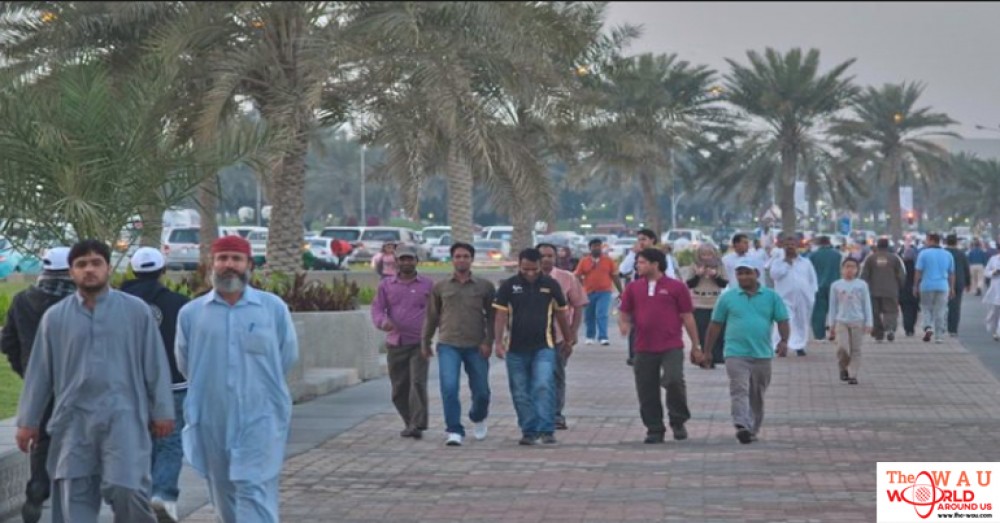Just a 10-minute drive from the International Labor Organization’s (ILO) new office in the Qatari capital, Nabin explains how his employer has not paid his wages in two months.
He is one of hundreds of workers helping transform Msheireb, a rundown district in Doha, into an area of hotels, luxurious apartments and Qatar’s very own “Wall Street” financial center at a total cost of some $5.5 billion.
The Nepalese laborer should receive 1,100 Qatar riyals a month ($300), but says he has to survive on considerably less — in one of the world’s richest countries.
“In my country I was promised 1,100, but for the past two months I haven’t got my salary,” he said. “They just gave me 100 riyals in advance.”
Like all workers interviewed for this article, the 20-year-old asked to use a pseudonym to protect his identity.
Resting in a patch of shade on the pavement during his lunch break as the midday heat reaches 36 degrees Celsius (97 Fahrenheit), Nabin said with no salary he is unable to buy food.
His is forced to rely on food at his labor camp, where he said he’s been served expired chicken.
Nearby, other workers rest after their morning shift, telling of endless problems.
Sumon, a Bangladeshi carpenter, said his company has refused to hand him his residency permit (RP) — an essential ID card used every day to prove legal residence and required to access anything from telephone contracts to opening a bank account.
“I gave 7,000 riyals to get an RP but the company has not made it,” he said.
“I said give it to me, I need it to travel, but I did not get any RP.”
He has complained to the courts, but a year on, he is still waiting.
“If I can get my RP, I will leave,” said the 24-year-old.
His colleague Ashik recounted how he paid 10,000 riyals — more than six months’ salary — to his sponsor just to obtain a No Objection Certificate, a document that permits a worker to transfer from one company to another.
He then had to pay another 10,000 riyals to get his new contract, he said.
Several workers complain of harassment from police demanding money from those without RPs.
They say one unlucky colleague was flown straight out of the country when he could not produce his permit.
Under huge pressure
The ILO opened its Qatar office on April 29, after signing a three-year agreement with the government to oversee fundamental labor change.
Qatar has come under huge pressure over its treatment of workers since winning the right to host the 2022 World Cup.
Limited reforms have failed to stem criticism from human rights groups and unions which accuse the Gulf state of widespread worker abuse.
Under its agreement with the UN agency, Qatar has committed to an overhaul including introducing a minimum wage — set at 750 riyals per month — establishing workers’ committees, and scrapping the exit visa where workers need their employers’ permission to leave the country.
...[ Continue to next page ]
Share This Post












